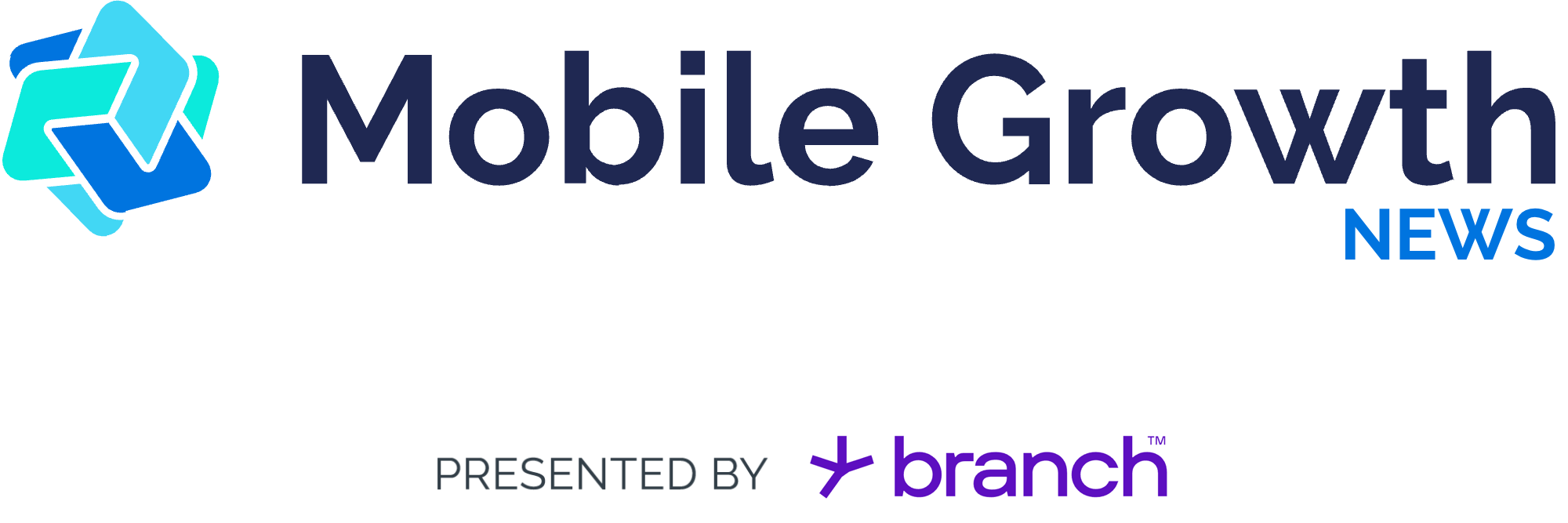 From Amanda
From Amanda
Ads are officially coming to ChatGPT
Ads have entered the Chat(GPT). The internet is, predictably, having a field day with this, and you’ll find takes ranging from “this makes sense” to “ads are evil.” More on that later.
These ads are debuting as premium placements wearing a $60 CPM price tag — far higher than most performance inventory and triple ads on Meta — and OpenAI has asked for a $200,000 commitment from advertisers participating in the Beta. Plus, there’s the measurement challenge. Advertisers only get access to aggregate performance data like views and clicks, aligning this to more of a brand awareness play rather than traditional performance marketing.
On the latest Mobile Dev Memo Podcast, Rishabh Jain made a compelling case for why the $60 CPM might actually be smart. His take: “they’re doing something that is so obviously not going to be the future of how this thing gets priced.” In other words, OpenAI has room to learn without being boxed in.
Rishabh argues that ChatGPT could become exceptionally good at pairing users with relevant ads while avoiding the need to mine individual conversations. In his view, ads enhance the internet by surfacing new companies and products people actually want. But not everyone’s convinced that balance will be easy to maintain.
Anthropic recently ran some cheeky (and genuinely funny) ads mocking the entire concept of ads in AI assistants, and leaning into the discomfort around chat history and data use. The twist, of course, is that they’re using ads to make the argument that ads are evil — a level of meta that surely gave some industry insiders a laugh.
Still, OpenAI leadership has maintained it wants to preserve what makes ChatGPT valuable in the first place. Sam Altman even responded to the Anthropic ads, saying they were admittedly funny but blatantly misrepresent OpenAI’s approach. According to their docs, ads are clearly labeled and kept separate from answers, they don’t influence how ChatGPT generates responses, and advertisers don’t have access to your chat history.
When it comes to who is building this behind the scenes, as reported by Axios, a recent study of LinkedIn profiles by The Information found that roughly 20% of OpenAI’s workforce previously worked at Meta (aka the modern ad machine). Few companies understand large-scale ad systems, targeting, and marketplace dynamics better.
Ads and ad-subsidized experiences are foundational to the modern internet, so this outcome was largely inevitable — especially given OpenAI’s financial pressures and astronomical operating costs. The interesting questions are how ads show up, how they’re monetized and measured, and which platforms resist them entirely (hi, Claude). I’m curious to see how well privacy holds, whether the economics and insights make sense for advertisers, and how this affects how brands think about AI discovery paths.
Interesting Reads
Apps finally overtake games in revenue
Sensor Tower just dropped its State of Apps 2026 report with some massive headlines.
First: YouTube is officially the #1 app across genders and every age group in the US. That's a stunning level of dominance in streaming time and monetization.
But here's the really big news: For the first time ever, apps generated more revenue than games on mobile. Apps hit $85.6B in in-app purchases in 2025 (up 21% YoY), overtaking games at $81.8B. This is huge — just four years ago, games were pulling in double what apps made.
So what drove the change? Games revenue has been flat since peaking in 2021. Meanwhile, GenAI apps added $3.5B in revenue in 2025 alone, leading the charge in accelerating app revenue growth.
That connects to the report’s other major insight: Mobile has become AI’s primary growth engine. The total GenAI audience in the U.S. crossed 200M by the end of 2025, and more than half of those users accessed AI through mobile. It turns out people really like AI on their phones.
What's also interesting is where GenAI apps are advertising to acquire users. According to the report, AI apps lean heavily on LinkedIn for ad impressions, with Reddit and X showing up as distant secondary channels.
Industry Buzz
Apple dominates a flat market. Next up: Phones that aren't?
Apple hit a record 69% U.S. market share in Q4 2025, up from 65% the year prior. It’s gaining market share in a U.S. smartphone market that’s otherwise completely flat, widening the gap with Samsung. Plus, new iPhone models are selling like hot cakes, and seven of 2025's 10 best-selling phones were iPhones.
Maybe that success is giving Apple the confidence to finally launch the foldable that’s been rumored for years. The iPhone Fold is expected in late 2026, and the rumor mill has more details if you’re curious. The foldable feels less like a bold reinvention and more like marginal newness to keep the continuous hardware upgrade cycle moving.
Spotlight
Infinite scroll under scrutiny
I’ve been closely following the global efforts to limit teen access to social media. If you haven’t been keeping up, Australia has banned social media for kids under 16, and several European countries are following suit. Now, the EU is pushing even further by targeting the core mechanics of social media products themselves.
This week, regulators ordered TikTok to disable features like infinite scroll, autoplay, and certain push notifications, arguing that they promote compulsive use and harm user well-being. As a TikTok user who recently had to set daily limits, I feel seen. TikTok is, unsurprisingly, pushing back.
The bigger takeaway for me isn’t about TikTok alone — it’s that governments are examining social media harms beyond just content moderation. They’re now scrutinizing engagement design itself. Jonathan Haidt outlined this thinking in “The Anxious Generation”, emphasizing that platform design shapes behavior and mental health outcomes, particularly for younger users.
Zooming out, features like infinite scroll and autoplay are foundational to how modern mobile apps drive time spent, retention, and monetization. Still, it’s unclear whether regulators will question these mechanics outside of the largest social platforms.
If regulators do deem certain engagement loops harmful, mobile teams will have to look at what sustainable growth looks like without them?
Personally, I’d rather see teams optimize for experiences users come back to by choice, not feeds designed to trap their attention.
 Adam's Take
Adam's Take
Surprise! OpenClaw, the open source agent’s first task is to steal your data
OpenClaw — last month’s smash hit new AI functionality — is an open source agent that runs on your computer and acts as “a true human personal assistant replacement.” Unfortunately, its most popular “skill” hosts malware that steals personal data. So do the 382 additional skills posted in the following three days.
1Password recommends treating any company laptop with the software installed as a security incident.
To be clear, third parties introduced the malware through add ons. While OpenClaw represents an incredibly interesting, and compelling technology, this is a wonderful lesson in AI’s real threat: It scales the actions of malevolent, human actors.
In a bid to save the internet, Microsoft launches a one-sided marketplace
Last week Microsoft launched Publishers Content Marketplace (PCM) in an attempt to right the keeling ship that is the open web. Details are sparse, but the idea is that PCM provides AI-specific rules of use, analytics, and a price tag for publishers to slap on their content. It’s much like CloudFlare’s pay-per-crawl protocol, which lets publishers charge — or block — AI-bot traffic. But where CloudFlare bars entry for non-payers, Microsoft apparently just allows publishers to hang a price tag on the window for AI bots.
The problem here is Microsoft’s marketplace is missing a crucial component that enabled the open web: advertising. Advertising generates 70% of publisher revenue and without the primary demand driver, publishers are setting prices in an empty showroom.
Subscription pricing for AI access doesn’t make much sense either. LLMs operate by aggregating content to provide synthesized, combined answers. While a model can be constructed to provide source attribution, it’s participatory and non-deterministic. An answer might contain information from the New York Times, Chicago Tribune, Wall Street Journal, but never as “New York Times 66%, Tribune 8%, WSJ 26%.” Imagine Google paying for every page returned in a search result.
Charging site-wide access for content is working for Reddit at $60M annually, but one-off negotiations won’t scale.
Advertising — a model yet to be proved on LLMs — is the demand that drove the other side of the open web market. PCM is a noble attempt at laying the groundwork for a marketplace, but without demand, it’s hosting an auction to an empty room.
 Podcast
Podcast
Podcast: Why Your Mobile App Strategy Is Backwards — and What To Do Instead (with Matt Hudson)
In this episode of How I Grew This, host Amanda welcomes back Matt Hudson, founder of BILDIT, to discuss mobile app strategy, organizational alignment, and preparing your e-commerce business for AI-driven discovery. Joined by co-host Adam, the conversation explores why mobile apps remain critical for retailers, how to shift organizational mindset around channel cannibalization, and the technical and strategic steps needed to optimize for LLM discovery.
